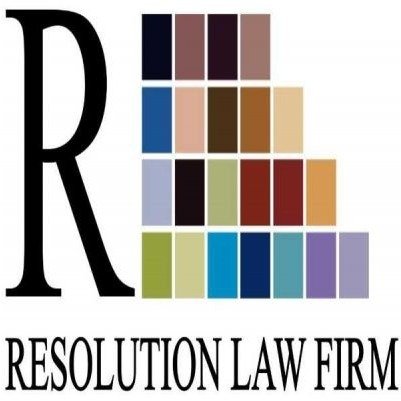Best Child Visitation Lawyers in Lekki
Share your needs with us, get contacted by law firms.
Free. Takes 2 min.
Free Guide to Hiring a Family Lawyer
List of the best lawyers in Lekki, Nigeria
About Child Visitation Law in Lekki, Nigeria
In Lekki, Nigeria, laws around child visitation are aimed at doing what is in the best interest of the child. If parents cannot agree on visitation rights, the court comes in to settle the disputes. The visitation rights are generally granted to the noncustodial parent, except in situations where the court determines that visitation could potentially harm the child. Custodial arrangements can be modified over time with changes in circumstances.
Why You May Need a Lawyer
Child visitation rights can be a complex matter and may require legal assistance, particularly in situations where parents cannot reach an agreement, or when there are concerns about child abuse, substance misuse, or potential harm to the child. Furthermore, if changes occur in the life of either parent that necessitate modifying the visitation agreement, legal help may be required. A child visitation lawyer can provide assistance in defending your rights as a parent and ensuring the welfare of the child.
Local Laws Overview
Nigerian child visitation law is guided by the Child's Right Act of 2003, which is enforced in Lagos State, incorporating Lekki. The Act emphasizes the child's right to parental care, protection and maintenance. Here, the court determines visitation based on the child's best interest, considering the child's age, emotional ties, and the capacity of both parents to provide for the child's needs. The courts have the authority to adjust the visitation schedule as circumstances change.
Frequently Asked Questions
1. Can a noncustodial parent be denied visitation rights?
Generally, a noncustodial parent cannot be denied visitation rights unless the court determines that visitation can potentially harm the child. This decision is made based on evidence presented to the court.
2. Can a custodial parent deny visitation if the noncustodial parent doesn't pay child support?
No, a custodial parent cannot legally deny visitation rights purely on the basis of non-payment of child support. The two are separate legal issues and they should be addressed individually in a court.
3. Can a child refuse to visit a noncustodial parent?
Nigerian law does consider a child's wishes, particularly for older children. However, the ultimate decision rests with the court. Parents should not influence the child's decision in this matter.
4. Can visitation rights be modified?
Yes, Nigerian courts allow for modifications to visitation rights due to changes in circumstances, like relocation or changes in a child’s needs, with the best interest of the child being paramount.
5. What happens in cases of violation of visitation rights?
Violation of court-ordered visitation agreements can result in legal consequences. The aggrieved party may apply to the court for enforcement or file a complaint for contempt of court.
Additional Resources
The Lagos State Ministry of Justice and the Lagos Public Interest Law Partnership provide legal resources and services. NGOs like the Office of the Public Defender (OPD) and Women Advocates Research and Documentation Centre (WARD C) can also provide assistance and guidance.
Next Steps
If you need legal assistance for child visitation issues, consider hiring a competent lawyer in family law who specializes in child custody matters. Make sure to gather all relevant documents and be prepared to provide a detailed account of your situation to allow for adequate representation.
Lawzana helps you find the best lawyers and law firms in Lekki through a curated and pre-screened list of qualified legal professionals. Our platform offers rankings and detailed profiles of attorneys and law firms, allowing you to compare based on practice areas, including Child Visitation, experience, and client feedback.
Each profile includes a description of the firm's areas of practice, client reviews, team members and partners, year of establishment, spoken languages, office locations, contact information, social media presence, and any published articles or resources. Most firms on our platform speak English and are experienced in both local and international legal matters.
Get a quote from top-rated law firms in Lekki, Nigeria — quickly, securely, and without unnecessary hassle.
Disclaimer:
The information provided on this page is for general informational purposes only and does not constitute legal advice. While we strive to ensure the accuracy and relevance of the content, legal information may change over time, and interpretations of the law can vary. You should always consult with a qualified legal professional for advice specific to your situation.
We disclaim all liability for actions taken or not taken based on the content of this page. If you believe any information is incorrect or outdated, please contact us, and we will review and update it where appropriate.












